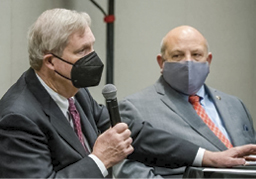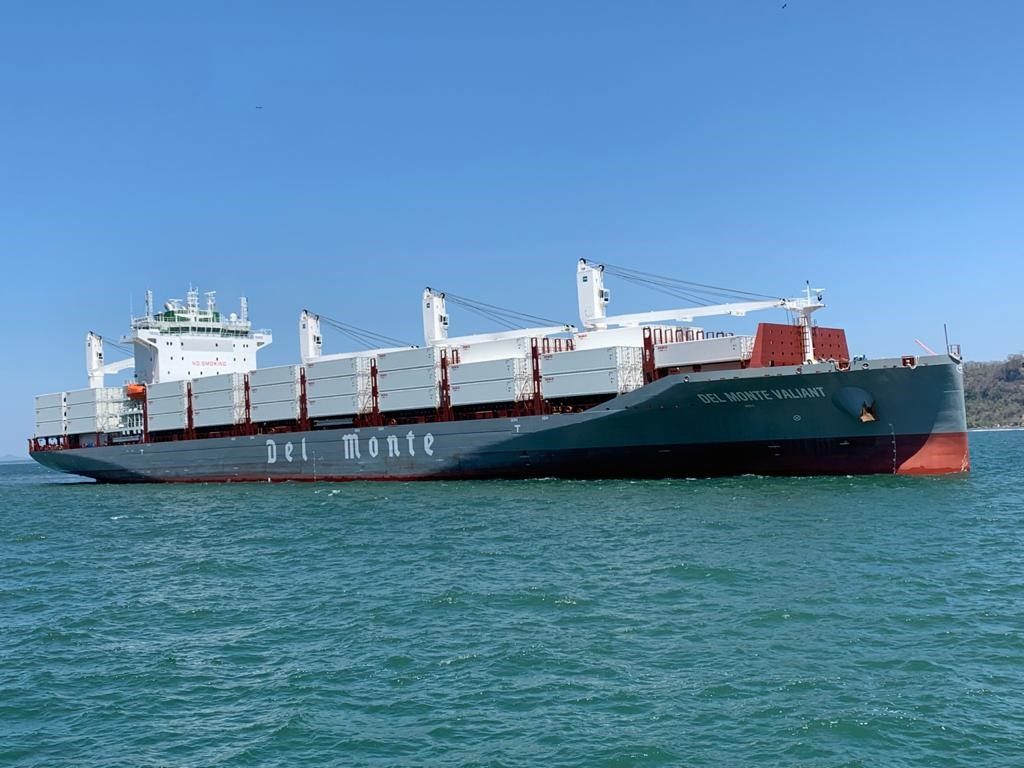Jan 12, 2022Vilsack: Port progress may aid agricultural exports
U.S. ports are making progress in clearing docks piled high with shipping containers in a pandemic-induced crisis that is delaying billions of dollars in U.S. agricultural exports and causing severe financial worries for America’s farmers, U.S. Agriculture Secretary Tom Vilsack said Jan. 10.
In a wide-ranging speech at the American Farm Bureau Federation Annual Convention in Atlanta, Vilsack said the U.S. Department of Agriculture has committed $500 million to ease port congestion and related transportation challenges. But, he said, “We have too many empty containers leaving our ports without having agricultural products in them.”

A recent University of California, Davis, study estimated California farmers lost $2.1 billion in export sales between May and September 2021 due to container shortages, clogged ports and other inefficiencies. The problem has particularly impacted exports of California tree nuts and wine.
The port congestion, combined with increasing imports from Asia and surging demand for containers, has led some shipping companies to rush empty containers back to the Far East without bothering to fill them.
Vilsack said the crisis was triggered by a rapidly expanding economy and increased consumer demands amid the market recovery from the pandemic. But he said farmers need to benefit in that recovery.
“There’s a market demand, an export opportunity. There’s a chance… for us to have a record year in exports,” Vilsack said.
But, he added, “We can’t have a record year for exports if we have empty containers leaving our docks without our agricultural products that are waiting for those markets.” He warned, “We can potentially lose markets. We can see spoilage. We can see losses of value because of that delay.”
Vilsack said easing the port crisis is critical because 30% of American farm products are “exported around the world.”
Another critical action, he said, is to hold China to its commitment to buy more American agricultural products – a pledge included in the 2020 Phase One Trade Agreement between the U.S. and China.
While he said sales of farm products to China have increased as the trade conflict between the two countries has eased, Vilsack said, “Here’s the deal: Our Chinese friends are about $16 billion light in what they committed to purchase” from American agricultural producers.
As he opened his remarks on China, Vilsack said he felt it was important “to send a message to farmers, ranchers and producers and, also, tothe American public that existing agreements will be enforced.”
Vilsack also said the U.S. is committed to diversify its farm exports “beyond our reliance on China.” For example, he said, new agreements have reopened markets for pork sales to India, and wheat, corn and pork to Vietnam. Meanwhile, he said, an accord is in the works to boost potato exports to Mexico.
Vilsack’s remarks were preceded by a video address to the AFBF Convention from President Biden, who touted his administration’s commitment to enforcing fair competition laws to protect domestic market access for small American meat and poultry producers.
Biden said his administration is investing in expanding meat and poultry processing and that he is working with “a bipartisan group of senators … on legislation to make cattle markets more transparent.
“This is about making sure that your contributions are recognized and your challenges are addressed,” Biden said. “This is all about making sure that all of you are fully built in as we build back better.”
The president also said his $1.2 trillion Infrastructure Investment and Jobs Act , passed in November, will provide significant benefits for agricultural and rural communities in “roads, bridges, rail, waterways” and broadband “to build more resilient supply chains and make it easier, faster and cheaper for you to get your goods to market.”
In his speech, Vilsack touted another market and export opportunity: climate-smart agriculture.
“We know that the markets in both the U.S. and around the world are continually going to demand more climate-smart commodities,” Vilsack said. “They’re going to want to know where and how various products were produced. And the exciting news is that we are on the cusp of providing significant help.”
He said the USDA Commodity Credit Corporation will be making funding available for pilot projects that can help farmers reduce costs in implementing sustainable agricultural practices.
Earlier, the credit corporation made $500 million in loans available to help farmers in the Western U.S. with drought recovery and adoption of new water-smart management practices.
Vilsack said the administration is working with AFBF to develop voluntary, incentive-based programs that encourage smart farming practices and reward innovation without government mandates.
“Listening to the Farm Bureau and listening to those in agriculture, we know that it’s important to establish a partnership in this effort,” Vilsacksaid.
“We know that it has to be voluntary and it has to be incentive-based,” Vilsack said.
– Peter Hecht, California Farm Bureau

















